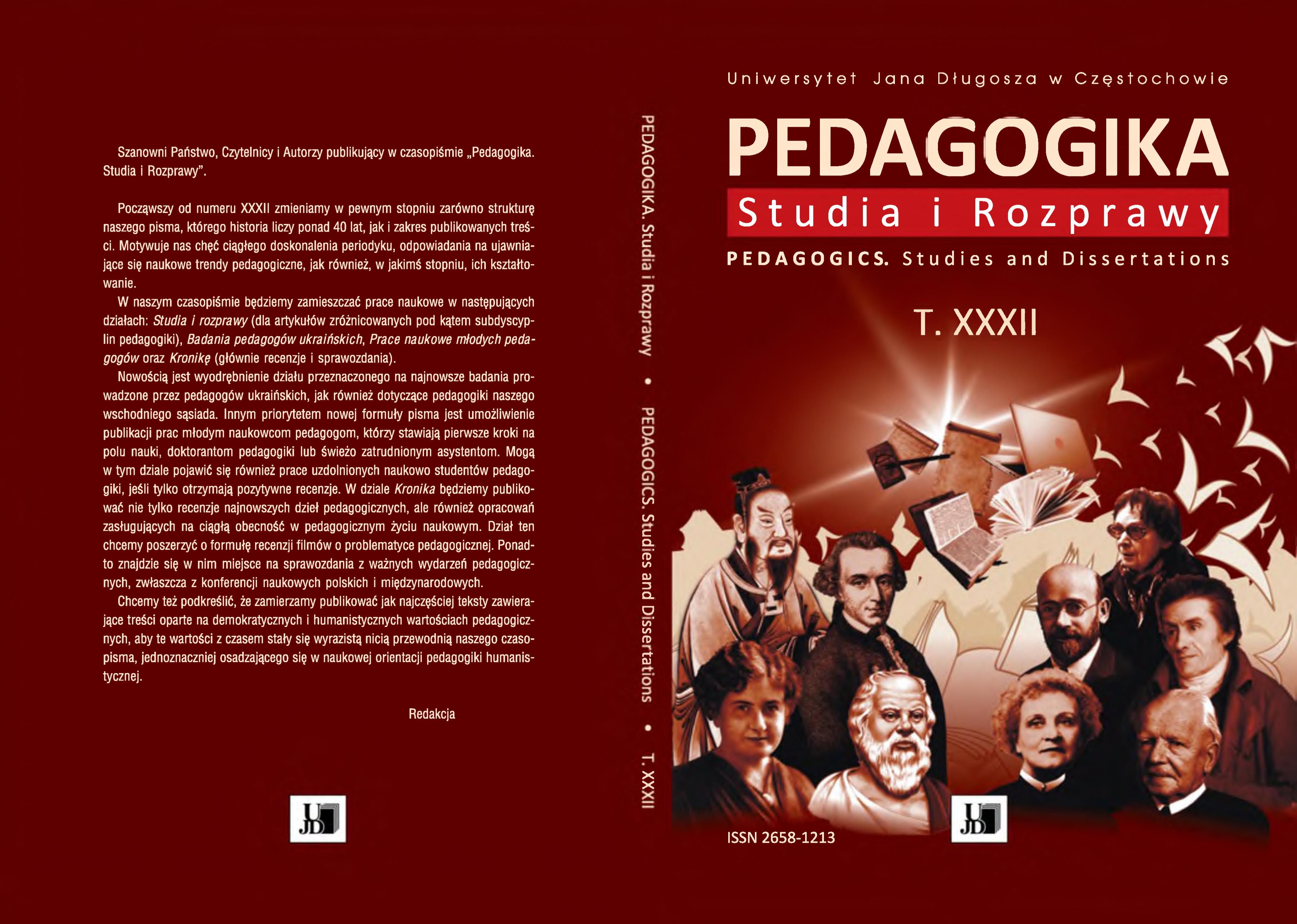Wyższe Kursy Ziemiańskie im. Jerzego Turnaua we Lwowie w latach 1919–1939 i ich geneza
DOI:
https://doi.org/10.16926/p.2023.32.03Słowa kluczowe:
Lwów, ziemianie, stowarzyszenia rolnicze, oświata rolniczaAbstrakt
Na przełomie XIX i XX wieku na ziemiach polskich pod panowaniem Austrii, dzięki względnej
swobodzie politycznej, nastąpił rozwój oświaty rolniczej. Warstwy oświecone zdawały sobie sprawę, że jedną z metod pracy było bezpośrednie oddziaływanie na rolników, to jest: pokazy gospodarstw wzorcowych, służenie radą i przykładem dobrej
gospodarki, organizacja praktyk dla młodych rolników, organizacja i działalność w stowarzyszeniach
rolniczych. Zwiększenie kultury rolnej folwarków było wstępem do rozpoczęcia pracy oświatowej wśród
chłopów. Wspierano więc oświatę rolniczą poprzez organizowanie szkół i kursów rolniczych, zakładano
biblioteki i czytelnie.
W 1906 roku z inicjatywy Witolda Leona Czartoryskiego w jego majątku w Pełkiniach k. Jarosławia powstał ruch społeczny ziemian w postaci kółek zrzeszających właścicieli folwarków zamieszkałych w jednej okolicy. Ich celem było poszukiwanie dróg modernizacji folwarków i podniesienie ich rentowności. Formami działalności były: zwiedzanie folwarków członków kółek, prowadzenie
rolniczych stacji doświadczalnych i wymiana doświadczeń. Organizowano również wyjazdy, 1–2 razy w roku, do dalszych miejscowości, głównie w Wielkopolsce (pod zaborem pruskim), w celu poznania tamtejszej kultury rolnej stojącej na wyższym poziomie. W 1911 roku uruchomiono praktyki rolnicze we własnych folwarkach dla uczniów i studentów szkół rolniczych.
W 1919 roku we Lwowie otwarto 2-letnie Wyższe Kursy Ziemiańskie o poziomie wyższym niż w szkołach średnich. W 1938 roku WKZ uzyskały status wyższej uczelni nieakademickiej o 3-letnim okresie studiów i prawo do nadawania tytułu inżyniera rolnictwa. W okresie 20 lat działalności studiowało tam 457 studentów, w tym 306 mężczyzn i 151 kobiet.
Bibliografia
Bujak, F. (1908). Galicja. T. 1. Lwów – Warszawa: H. Altenberg; E. Wende i Spółka.
Czartoryski, W. (1912). Kółka Ziemian. Kórnik: Nakł. Biblioteki Kórnickiej.
Dziesięciolecie Wyższych Kursów Ziemiańskich we Lwowie 1919–1929 (1930). Lwów. (wydawca nieznany).
Dunin-Wąsowicz, K. (1952). Czasopiśmiennictwo ludowe w Galicji. Wrocław: Wydawnictwo Zakładu Narodowego im. Ossolińskich.
Dunin-Wąsowicz, K., Kowalczyk, S., Molenda, J., Stankiewicz, W. (oprac.) (1966).
Materiały źródłowe do historii polskiego ruchu ludowego. T. 1: 1864–1918. Warszawa: Ludowa Spółdzielnia Wydawnicza.
Galos, A. (1972). Stosunki gospodarczo-społeczne na ziemiach polskich pod panowaniem pruskim 1900–1914. W: Ż. Kormanowa, W. Najdus (red.), Historia Polski. T. 3. Cz. 2: 1900–1914 (s. 106–162). Warszawa: PWN.
Gurnicz, A. (1967). Kółka rolnicze w Galicji. Warszawa: Ludowa Spółdzielnia Wydawnicza.
Wośkowski, T. (2011). Dzieje studiów rolniczo-lasowych w ośrodku lwowsko-dublańskim. Warszawa: Centralna Biblioteka Rolnicza.
Wyrost, P. (2001). Akademia Medycyny Weterynaryjnej we Lwowie (1881– 1945). W: J. Sobota, T. Szulc, J. Tyszkiewicz (red.), Dzieje Akademii Rolniczej we Wrocławiu (s. 19–34). Wrocław: Wydawnictwo Akademii Rolniczej.
Wyższe Kursy Ziemiańskie im. Jerzego Turnaua we Lwowie (1939). Lwów.
Żabko-Potopowicz, A. (1929). Stulecie działalności ziemiaństwa polskiego 1814–1914. Warszawa: Wyd. Rady Naczelnej Organizacji Ziemiańskich.


